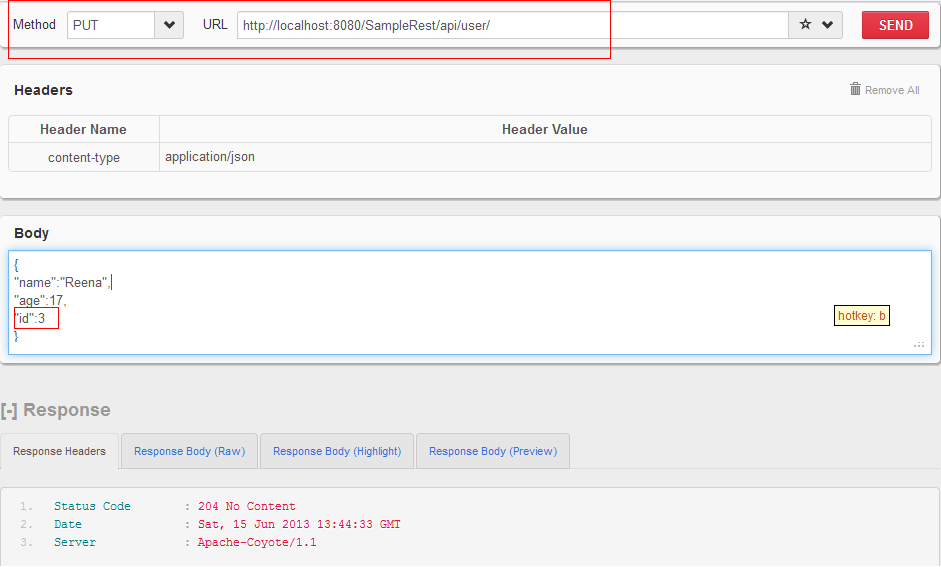I was searching the net on good practices for developing RestFull services when I came across this interesting discussion on stack overflow:
The question was "Should we use PUT or POST for Create Resource ?"
Among the answers - there was the interesting response that PUT can be used for both update and create.
That means a single API which takes a resource, checks if it exists then creates it else updates it. I decided to try the same:
So I decided to test it using the RESTClient plugin in Firefox.
CREATE:
UPDATE:
The question was "Should we use PUT or POST for Create Resource ?"
Among the answers - there was the interesting response that PUT can be used for both update and create.
That means a single API which takes a resource, checks if it exists then creates it else updates it. I decided to try the same:
@RequestMapping(method = RequestMethod.PUT) public ResponseEntity<Void> saveUser(@RequestBody final User user) { boolean recordExists = false; final Integer userId = user.getId(); if (-1 == userId) {// user id defaults to -1 for uncreated records this.addUserToSystem(user); logger.info("saveUser: new user added with id " + user.getId()); } else { recordExists = true; this.updateUserInSystem(userId, user); logger.info("saveUser: user with id " + userId + " has been updated"); } ResponseEntity<Void> responseEntity = null; final HttpHeaders headers = new HttpHeaders(); HttpStatus responseStatus = null; if (recordExists) { responseStatus = HttpStatus.NO_CONTENT; } else { final URI location = ServletUriComponentsBuilder .fromCurrentServletMapping().path("/user/{id}").build() .expand(user.getId()).toUri(); headers.setLocation(location); responseStatus = HttpStatus.CREATED; } responseEntity = new ResponseEntity<Void>(headers, responseStatus); return responseEntity; }
- My REST operation has the URL http://localhost:8080/SampleRest/api/user/ and method is PUT.
- If the passed resource exists it will create one, returning a Status of 201 and the URL in the location header.
- If it already exists, Server will update the resource returning a status of 204.
So I decided to test it using the RESTClient plugin in Firefox.
CREATE:
UPDATE:


No comments:
Post a Comment